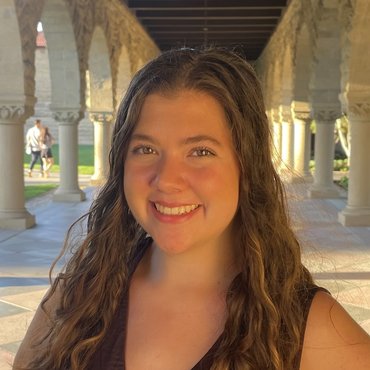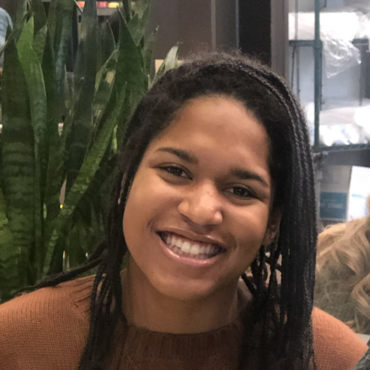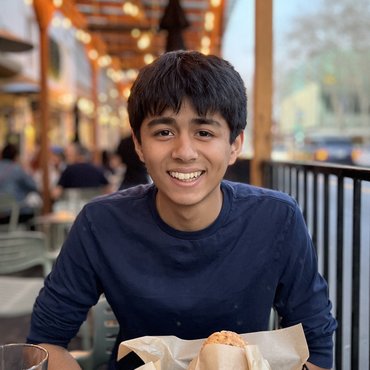
Minha Khan, '21
Advocating for the right to learn in your own language
During the summer after my first year at Stanford, I interned at The Citizens Foundation (TCF) in my home city of Karachi, Pakistan. TCF is an education nonprofit organization that runs more than 1,600 schools in low-income regions of Pakistan. My job was primarily to conduct data analyses identifying how to reduce teacher attrition.
Near the end of my internship, my supervisor suggested that I spend a week working with different parts of the organization to get a feel for the holistic nature of TCF’s work. We went department by department, helping me become acquainted with people who work across the organization. Our last stop was a desk right in the corner of the organization's work space.
“Meet Ajay,” my supervisor said. “He runs our Mother Tongue-Based Multilingual Education Program.”
I had never heard these words before. “Mother tongue… sorry, I didn’t catch that,” I replied, confused.
Both Ajay and my supervisor laughed. They explained that it was a new department—founded a few months before—that aimed to revise TCF’s language policy. While TCF was currently teaching bilingually in English and Urdu (the local language), the students came from a wide array of linguistic backgrounds. Pakistan is one of the world’s most multilingual nations, with over 75 languages spoken across the country. This meant that many of the TCF students were learning in a language not spoken at home (i.e., their native language)—particularly students in rural areas of Pakistan. This mismatch between home language and school language was the phenomenon being studied by the Mother Tongue-Based Multilingual Education (MTB MLE) team.
Having grown up in Pakistan for most of my life with all of my schooling conducted bilingually in Urdu and English, the language mismatch that the MTB MLE team was studying struck a chord with me. I’d seen my friends, family, and classmates struggle with trying to learn in languages unfamiliar to them. Students like me, who were proficient in English and Urdu, scored well in class. However, those who had different home languages struggled to keep up. When these students used their native language in class, they would be reprimanded: “Speak in English! This is a school.”
I was a witness to the erasure of linguistic diversity within the classroom, and hearing someone actually frame this as a problem worth being addressed felt like an “aha!” moment to me; it was something I had been waiting for my whole life.
My internship was set to end a few days after my departmental tours, and I was supposed to return to Stanford shortly afterward, but I felt compelled to stay involved.
“How can I be involved? Tell me how I can be a part of this,” I asked Ajay.
Ajay assigned research-oriented tasks to me—conducting literature reviews, finding MTB MLE programs being implemented across the globe, getting in touch with professors at Stanford to learn from their expertise in educational program design, and so on.
One thing led to another, and soon I will be celebrating my three-year anniversary of working with the MTB MLE Team at TCF. Throughout the academic year, I work remotely. During the summer, I work in person.
In the last three years, our team has developed a child-centered education model that incorporates the languages familiar to children into the curriculum and uses them to strengthen foundational concepts. Our model considers linguistic diversity as an asset in the classroom, rather than something that holds children back. The model ensures that students don’t leave their home, language, and experiences at the door—but bring those things into the classroom with them.
Developing this program took time. We interviewed hundreds of people, read innumerable articles and books, and conducted socio-linguistic ethnographies. We documented this process and published a 111-page guide on how to develop MTB MLE programs in linguistically heterogenous areas. Today, our curriculum is being implemented in TCF schools in Tharparkar, and soon will be offered in regions across Pakistan.
My service with The Citizens Foundation has been, and continues to be, among the most incredible experiences of my life. It has guided my personal, academic, and professional journey. I now know that I want to spend the rest of my life as a community-based researcher, a role where I find my sense of purpose and passion. I came into my TCF internship three years ago thinking I was going to have a meaningful summer, but I found so much more. I discovered something worth living and striving for.
I will be continuing my work with TCF after graduating this year and am excited to see where this journey takes me.
_____
To learn more about TCF's Mother Tongue-Based Multilingual Education (MTB-MLE) work, you can watch this video and read a report Minha helped publish, "Finding Identity, Equity, and Economic Strength by Teaching in Languages Children Understand".


